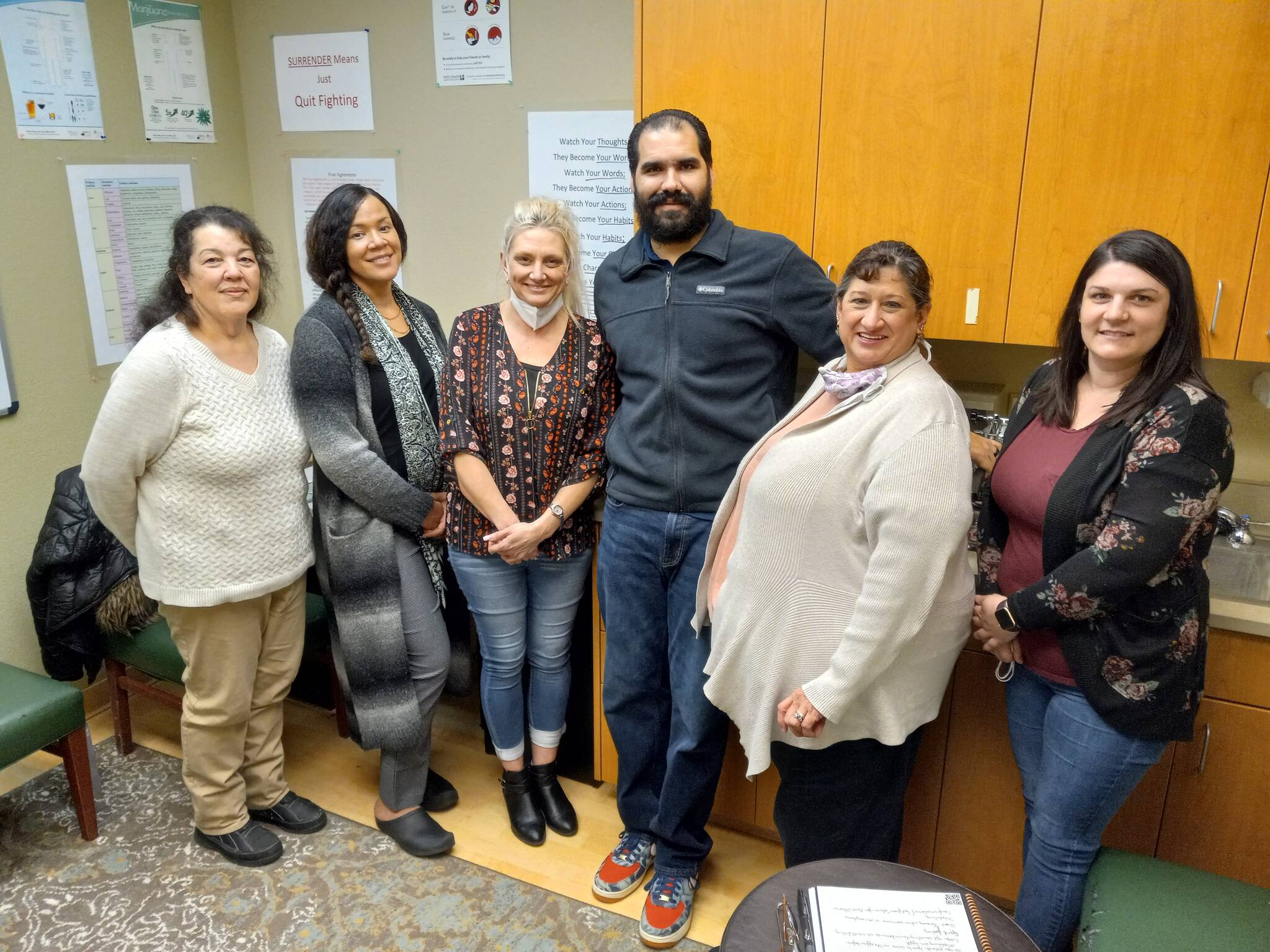You may see Michael Preston on those Thursday afternoons Community Court is in session at the Auburn Resource Center, with Judge Matthew York presiding.
Preston, 34, is a tall, dark-haired man with a full beard and an intense gaze. He is familiar with what York is telling the minor offender in front of him: there are resource providers and volunteers he’s prepared to connect him to as an alternative to jail and fines. But the guy’s gotta stay crime free and follow through with all commitments he’s agreed to, or his case will be returned to traditional court.
After court, Preston waits at the Resource Center and “hopes people who want to get clean come talk to me.”
Preston is a substance-use disorder trainee at Walk to Freedom, a state certified substance-use disorder facility that opened in 2018 in an office at 931 Harvey Road in Auburn to provide drug and alcohol outpatient services and mental health outpatient services.
The agency is active in its outpatient facility, working with the homeless at other agencies and with courts to do certified drug and alcohol assessments for DUI-deferred prosecutions and others that are court ordered. It also works with clients who are self-reported and want to do it on their own with the agency’s help.
Owner and founder Lynn Dalsing navigates the bewildering labyrinth of regulations and insurance on behalf of client. She explained what prompted her to launch the agency.
“I just felt that people in the system and all of that don’t feel like they’re being heard and don’t have a voice. I founded the agency to make sure that everybody knew they were being heard and what they were feeling and thinking was validated, that someone was listening to them,” Dalsing said.
Among those listening are people who know firsthand what those who come to them for help are going through. That includes Preston and fellow counselor Allyson Noel.
Not long ago, Preston and his wife were homeless in Federal Way and their daughter was in foster care and about to be adopted.
“I went to prison, and when I got out I was homeless and in danger of losing my kid,” Preston said. “Fortunately, I knew someone who owned a treatment center who took me in. Allyson was my counselor at the treatment center there, and I worked my way up. My plan was to be a stay-at-home dad. Lynn and Allyson reached out and asked me if I wanted to become a counselor. They helped me get my license and get enrolled in school, and that’s where I am.”
Noel said she herself drank and used drugs from age 13 to 35 before she got sober and went to school to be a drug and alcohol counselor.
“I have been a drug and alcohol counselor for nine years, and I love it,” Noel said. “I love giving back to the community. I love getting down with addicts and helping them walk through the healing process. Sometimes they need detox, sometimes they need in-patient services, so we just start at basics. First, we stop the drugs and alcohol, and then we start dealing with the process. Whatever they need to work on, I always start on the first five things, which are their emotions, their physical and spiritual health and their mental health and their community. It’s very important for them to be good members of society.
“That’s where I start when I meet the client, and I work from there. I set up goals so they can achieve those. They work on their recovery plan that is tailored to each client. Every client is different, so you have to meet them where they’re at. You get to know them first, and then you help them find the resources that they need like a job or housing,” Noel said.
Many of the court-ordered clients arrive denying they even have a problem, convinced what has happened to them was a one-off, Preston said.
“We have to show them that most people don’t get a DUI or get in trouble with the law, and walk them through the process of first getting them to the acceptance that maybe there is something to take a look at,” Preston said.
Maggie Baldridge isn’t a counselor, but often works at the front desk, where she has seen that initial resistance turn into success.
“We had one person in particular that came in literally dragging their feet being pulled in by their parent, and now I see them successful and moving forward out in the community. That makes me really happy,” Baldridge said.
Many of their clients are homeless, Dalsing said, and struggling because they are out on the streets and it’s hard to get connected to treatment.
“They’ve got to meet their survival needs first, which is a home, water and food, and we’re not able to treat the addiction yet, so I’ve got to find them housing and they’ve got to able to go into housing. Some of them don’t want to be in structured housing, which is fine. When they are willing, we are here for them,” Dalsing said.
“One the reasons that I’m here is because we care. It’s not about the numbers or the money. It’s about helping people. That’s the heart of this agency,” Preston said.


